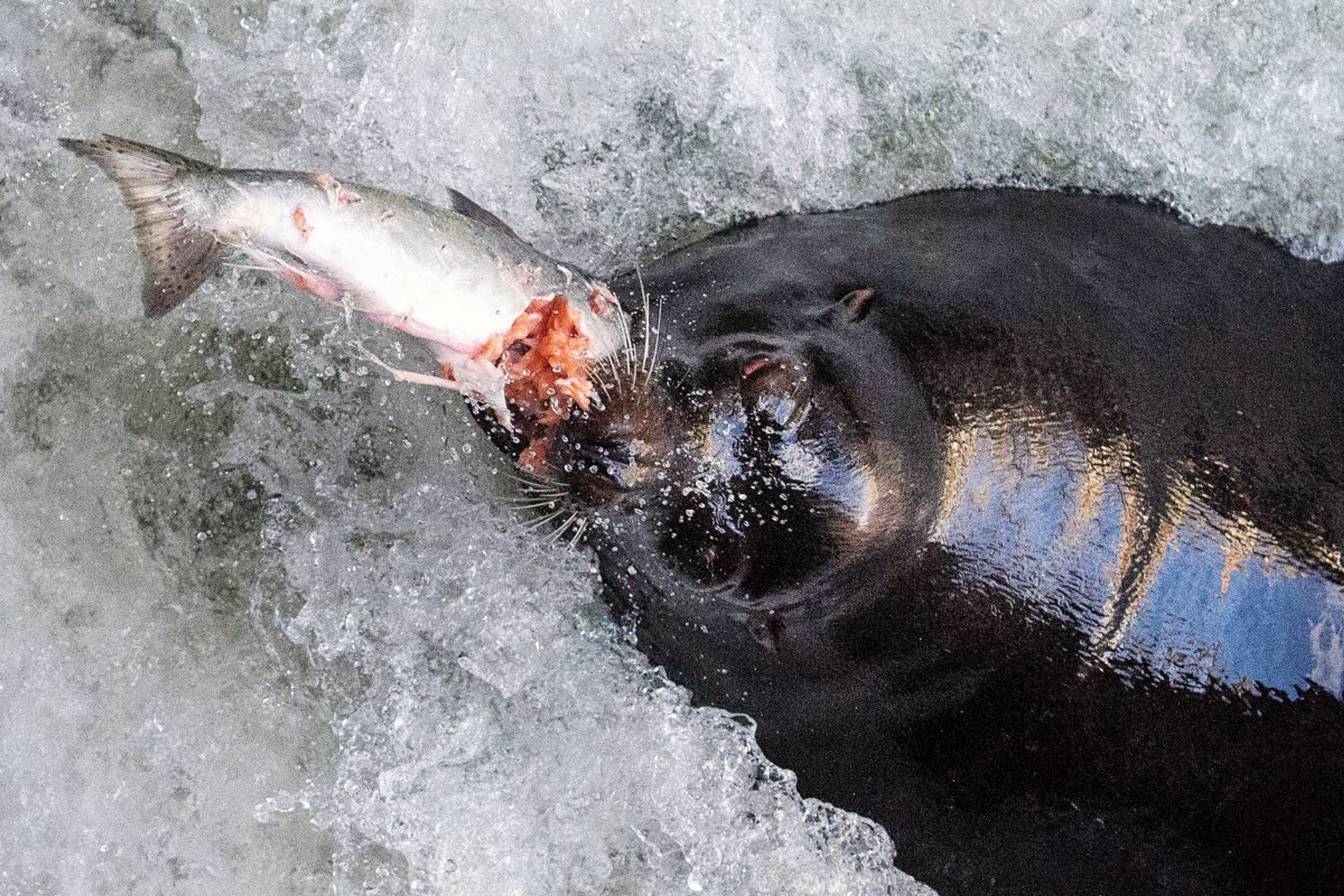Bill targeting sea lions advances
U.S. Senate passes measure making it easier to kill sea lions preying on salmon and steelhead in Columbia watershed
A bill that will allow Northwest states and American Indian tribes to more easily kill sea lions that prey on salmon and steelhead in the Columbia River and its tributaries passed the U.S. Senate by unanimous consent Thursday.
The Endangered Salmon and Fisheries Predation Prevention Act was co-sponsored by Sen. Jim Risch, R-Idaho, and Sen. Maria Cantwell, D-Wash. A version of the same legislation passed the House in June, but slight differences mean the House will have to sign off on the Senate version before the bill heads to the desk of President Donald Trump.
“Idaho’s efforts to restore populations of endangered salmon and steelhead in the Columbia River has been significantly compromised by predatory sea lions,” Risch said in a statement released by his office. “Passage of this legislation will help ensure vibrant, healthy populations for years to come. I encourage my colleagues in the House to pass this bill expeditiously.”
If that happens and the president signs the bill, the protocols that fisheries officials from Oregon, Washington and Idaho must follow before lethally removing sea lions feasting on salmon and steelhead at places like Bonneville Dam on the Columbia River and Willamette Falls on the Willamette River will be significantly relaxed. The bill also allows tribes such as the Nez Perce in Idaho and the Yakama in Washington to kill sea lions.
Scientists have documented that sea lions eat an average of about 20 percent of the spring chinook run in the lower Columbia each year. That figure has been as high as 43 percent and as low as 11 percent in individual years. Combined with other threats like dams and habitat degradation, fisheries officials say sea lion predation further imperils fish protected by the Endangered Species Act, including salmon and steelhead that return to Idaho and eastern Washington.
On the Willamette River, fisheries managers say sea lion predation on winter steelhead may drive that run to extinction.
“Wild salmon play a critical role in the economy, culture, and tribal treaty rights of the Pacific Northwest. As endangered salmon face extinction, we must take steps to protect them. Science-based predation management will allow state and tribal wildlife officials to protect vulnerable salmon populations and the orcas that feed on them,” Cantwell said in a statement.
The states already have the ability to kill some sea lions on the lower Columbia, and Oregon has the same authority for the Willamette River. But to do so they must follow a cumbersome process. A provision of the Marine Mammals Protection Act allows the states to seek permits to kill individual sea lions that have been documented to prey on salmon and steelhead.
To meet the terms of the permits, the agencies capture and brand sea lions so they can be identified. To land on a lethal-removal list, the branded animals must be observed at places like Bonneville Dam for five days; be observed eating a salmon or steelhead; and be subjected to hazing. Once those provisions are met, the animals can be euthanized provided they can be recaptured.
The bill simplifies the process by removing the requirement that agencies identify individual animals as problems. Instead, it allows the states and tribes to capture and euthanize any sea lion east of the Interstate 205 bridge near Portland.
There are an estimated 250,000 to 270,000 California sea lions and 71,500 Steller sea lions up and down the West Coast of the U.S. and Canada. Only a small percentage of those visit the Columbia River, and even fewer venture far upstream.
Animal rights organizations like the Humane Society of the United States and the Animal Welfare Institute lobbied against the legislation.
“It is disturbing to see the Senate vote to increase the number of sea lions that permit holders can kill each year, when states with the current authorization to do so have never come close to meeting the current quota,” said Ryan Ososki, policy adviser at the Animal Welfare Institute in a news release.
Fishing groups, however, are supportive of the bill and worked to pass it.
“While no one wants to remove one animal to save another, taking this action today represents the best chance for Columbia River basin salmon and steelhead tomorrow,” said Ted Venker, director of the Coastal Conservation Association.
Barker may be contacted at ebarker@lmtribune.com or at (208) 848-2273. Follow him on Twitter @ezebarker.










